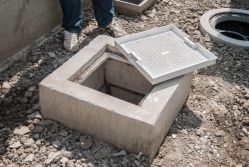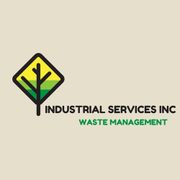A Guide for Maintaining Your Restaurant Grease Trap

Grease traps are collection sites for leftover waste produced during—or after—cooking food. They are usually cleaned by commercial waste removal services, with logs kept for federal and municipal inspections. Here is the information you need to properly maintain yours.
The Grease Trap & How it Works
When fat, oils, and grease cool, they become solid or semi-solid. This has the potential to block plumbing and sewer lines. Instead, grease traps accumulate these substances for later removal.
 Grease traps come in many sizes ranging from 250 to 2,500 gallons. The municipality will require a specific-sized trap depending on the types of food generated, hours of operation, and the expected occupancy of the restaurant. Grease traps are typically located outside the restaurant, on the other side of the wall of the dishwashing station. Some larger establishments may have the trap in the kitchen directly below the dishwashing unit.
Grease traps come in many sizes ranging from 250 to 2,500 gallons. The municipality will require a specific-sized trap depending on the types of food generated, hours of operation, and the expected occupancy of the restaurant. Grease traps are typically located outside the restaurant, on the other side of the wall of the dishwashing station. Some larger establishments may have the trap in the kitchen directly below the dishwashing unit.
The dishwasher uses hot water to clean and sanitize the dishes, pots, and pans. The heat helps the oils move easily into the trap, where they turn into sludge. A commercial waste removal service will then use vac tank pumping to remove the fats from the trap.
How Often Should This Be Performed?
Most restaurants pump the trap once every one to three months—though this depends on several factors. A ruler should be placed into the tank and measured during the first couple of months of opening the restaurant. An acceptable time to empty the tank is when it becomes a quarter full.
If it reaches much higher than this point, there is a chance of overflow, and grease will enter the municipal sewage lines. If lines become backed up and affect other businesses, you may be fined for repairs. Once you get a feel for the business and learn how long it takes to reach the quarter-full mark, you can create a maintenance schedule.
If you’re in need of commercial waste removal, contact the experts at Industrial Services. They’ve served Lincoln, NE, in both commercial and residential capacities, for over 100 years. They can pick up everything from your recycling to yard waste and have compactors available. Visit them online to learn more about their offerings or call (402) 467-3581 to talk to a representative.
About the Business
Have a question? Ask the experts!
Send your question

